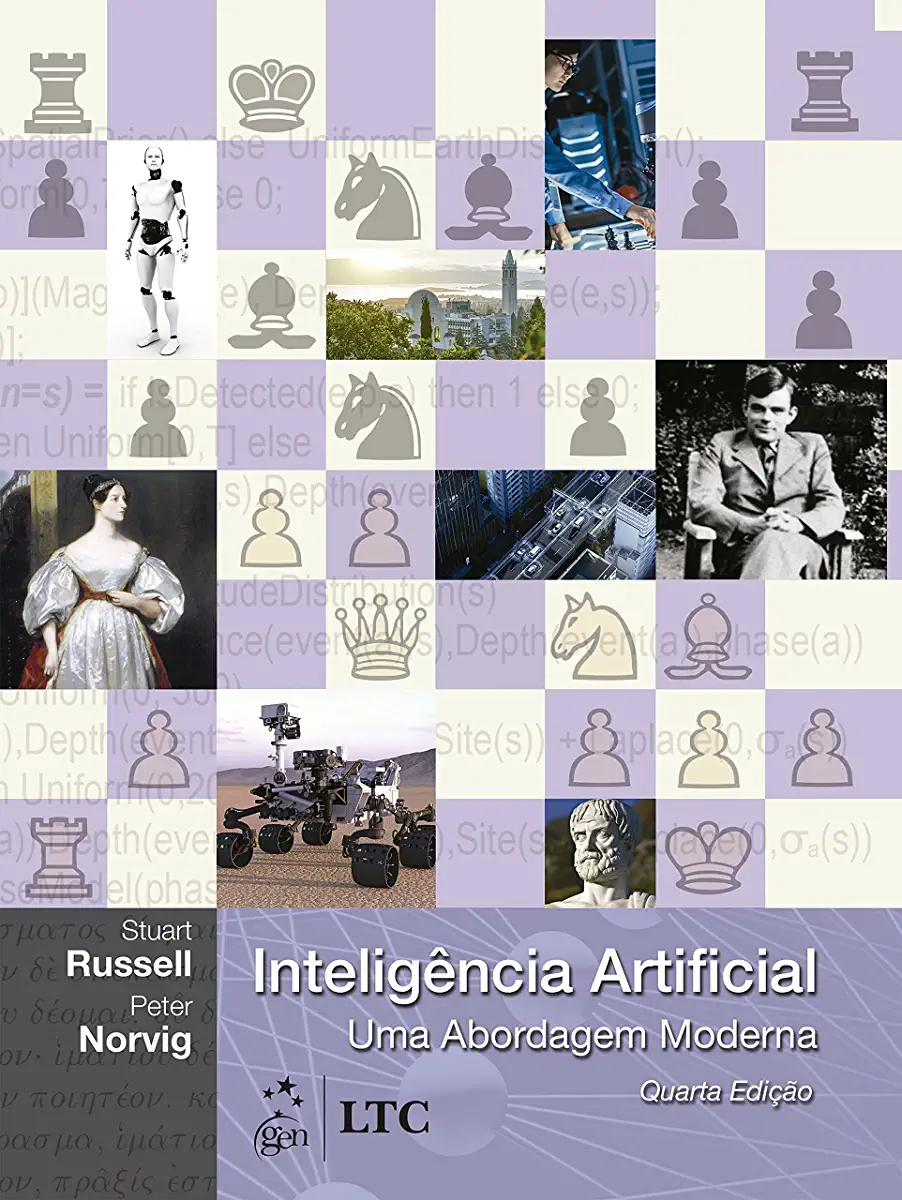
Artificial Intelligence- A Modern Approach by Stuart Russell and Peter Norvig
Artificial Intelligence- A Modern Approach by Stuart Russell and Peter Norvig
A Comprehensive Guide to the World of Artificial Intelligence
In the ever-evolving landscape of technology, Artificial Intelligence (AI) stands as a beacon of innovation and progress. This comprehensive book, authored by the renowned Stuart Russell and Peter Norvig, serves as an invaluable resource for anyone seeking to delve into the depths of this fascinating field. With its meticulous organization and engaging writing style, "Artificial Intelligence- A Modern Approach" offers a comprehensive exploration of the fundamental concepts, techniques, and applications of AI.
Key Features:
Comprehensive Coverage: This book encompasses a wide range of topics, from the basics of AI to cutting-edge advancements, providing readers with a holistic understanding of the field.
Clear and Concise Explanations: Complex concepts are presented in a clear and accessible manner, making the book suitable for both beginners and experienced professionals alike.
Real-World Examples: The authors effectively illustrate theoretical concepts through real-world examples, showcasing the practical applications of AI in various domains.
Interactive Exercises: Each chapter includes interactive exercises and thought-provoking questions, encouraging readers to engage with the material and reinforce their understanding.
Chapter Summaries:
1. Introduction:
This chapter provides an overview of the field of AI, its history, and its potential impact on society. It sets the stage for the subsequent chapters, highlighting the key areas of research and development within AI.
2. Intelligent Agents:
The concept of intelligent agents is introduced, laying the foundation for understanding how AI systems perceive and interact with their environment. This chapter explores various types of agents, their architectures, and the challenges they face in decision-making.
3. Problem-Solving:
This chapter delves into the core techniques used by AI systems to solve problems. It covers topics such as search algorithms, constraint satisfaction problems, and game playing, providing a comprehensive understanding of how AI systems approach and solve complex problems.
4. Knowledge Representation:
The representation of knowledge is crucial for AI systems to reason and make informed decisions. This chapter explores various knowledge representation formalisms, including propositional logic, first-order logic, and semantic networks, enabling readers to grasp how AI systems encode and manipulate knowledge.
5. Reasoning:
Reasoning is a fundamental aspect of AI, allowing systems to draw conclusions and make inferences based on their knowledge. This chapter covers topics such as logical reasoning, probabilistic reasoning, and uncertain reasoning, providing a thorough understanding of how AI systems reason about the world.
6. Learning:
The ability to learn and adapt is a hallmark of intelligent systems. This chapter explores various learning paradigms, including supervised learning, unsupervised learning, and reinforcement learning, shedding light on how AI systems acquire knowledge and improve their performance over time.
7. Natural Language Processing:
Natural language processing (NLP) enables AI systems to understand and generate human language. This chapter covers topics such as text processing, machine translation, and speech recognition, showcasing the advancements in AI's ability to communicate with humans.
8. Computer Vision:
Computer vision allows AI systems to perceive and interpret the visual world. This chapter explores topics such as image processing, object recognition, and scene understanding, demonstrating how AI systems extract meaningful information from visual data.
9. Robotics:
Robotics combines AI with physical systems, enabling the creation of autonomous machines. This chapter covers topics such as robot kinematics, motion planning, and sensor fusion, providing insights into how AI systems control and interact with the physical world.
10. Applications:
The final chapter showcases the diverse applications of AI across various domains, including healthcare, finance, transportation, and entertainment. It highlights the transformative impact of AI on society and its potential to revolutionize industries.
Conclusion:
"Artificial Intelligence- A Modern Approach" by Stuart Russell and Peter Norvig is an indispensable resource for anyone seeking to understand and engage with the field of Artificial Intelligence. Its comprehensive coverage, clear explanations, and engaging examples make it an ideal choice for students, researchers, and professionals alike. Whether you're a newcomer to AI or an experienced practitioner, this book will empower you to explore the frontiers of this rapidly evolving field and contribute to its ongoing advancements.